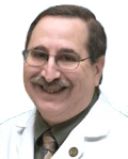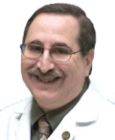Psychedelic-Assisted Therapy
Can Psilocybin Help Individuals With Alcohol Dependence?
Abstinence from alcohol increased in those treated with psilocybin and therapy.
Posted September 7, 2022 Reviewed by Vanessa Lancaster
Key points
- A recent study examined how those with alcohol use disorder responded to psychotherapy and psilocybin treatments.
- Participants substantially decreased drinking behavior. Benefits of the treatment persisted for at least 24 weeks after treatment sessions ended.
- Psychedelic therapeutics may add to the limited available tools to treat substance use and other mental disorders.
Co-authored by Charles Zorumski MD
Alcohol use disorder (AUD) is a common, disabling, and potentially deadly illness. It is responsible for many serious medical conditions and exacerbates other psychiatric disorders. In addition, it has significant negative consequences for job stability and interpersonal relationships. Although therapy and 12-step programs can help, the need for other effective treatments is great.
Recently, Michael Bogenschutz and colleagues published the results of a clinical trial of psilocybin for the treatment of alcohol dependence in the journal JAMA Psychiatry. The results are preliminary but intriguing.
The research team recruited 95 individuals to participate in the study. All met DSM-IV criteria for alcohol dependence. The average number of years of alcohol dependence was 14.2. During the 12 weeks prior to enrollment, they drank on about 75 percent of the days, including heavy drinking on about 53 percent of days. (Heavy drinking was defined as five or more drinks for a male and four or more for a female.) Individuals with major psychiatric and/or drug use disorders were excluded from the study, as were those currently being treated for AUD. Any hallucinogen use in the past year was also a reason for exclusion.
The average age of participants was 46 years. About 55 percent were male. Seventy-nine percent were non-Hispanic white, 17 percent Hispanic, and 5 percent Black. The median household income was about $100,000. Thus, the majority of participants were white and middle- and upper-middle-class.
The study protocol consisted of 12 sessions of psychotherapy that emphasized cognitive behavioral and motivational enhancement approaches and two administrations of either psilocybin or diphenhydramine, a sedating antihistamine that was used as an active control.
The first four therapy sessions occurred prior to the administration of medication. Four more sessions occurred during the four-week period between the first and second doses. The final four therapy sessions took place during the month after the second dose. Participants were followed for 24 weeks after they discontinued therapy sessions.
Individuals received oral study medications at weeks four and eight. They were required to remain in the treatment room for at least eight hours after taking the medication. During this time, they were encouraged to rest and listen to music. The research staff was present at all times to handle any adverse reactions.
The results were encouraging. During the first four weeks, i.e., after four weeks of therapy but before administration of medication, the percentage of heavy drinking days decreased in both groups: 49 percent to 21 percent in the diphenhydramine group vs. 56 percent to 24 percent in the psilocybin group.
From week five through the end of the study, the percentage of heavy drinking days remained fairly stable at about 24 percent in the group that received diphenhydramine (active control) but decreased to less than 10 percent in the psilocybin group.
A similar pattern was observed in the percentage of drinking days. Complete abstinence during the last four weeks of the study (weeks 33-36) was achieved by 24 percent in the diphenhydramine group and 48 percent in the psilocybin group. Problems associated with drinking also decreased in the psilocybin group.
A major weakness of this study was the inability to keep participants blind to their treatment. Over 90 percent correctly (and confidently) guessed to which group they were assigned. It is not surprising that participants could distinguish an antihistamine's effects from a psychedelic medication's effects. Study therapists also correctly guessed treatment assignments over 90 percent of the time.
The results of this study indicate that two doses of psilocybin administered one month apart and coupled with psychotherapy may substantially diminish the severity of alcohol dependence for a significant number of individuals. This benefit persisted for at least 32 weeks after the first dose. Would a third dose a few months after the second dose lead to even more improvement?
Ketamine has also been reported to help treat alcohol use disorder. Is it possible that there would be an additive, or even synergistic, effect of these two medications coupled with psychotherapy? Will treatments with psychedelic medications change the way we think about psychopharmacology? What will be the adverse effects of these agents with broader use in the population?
It will be important to determine whether similar results are observed in populations different from the largely white, middle- and upper-middle-class individuals in this study, who had limited psychiatric co-morbidities. Future research will also be needed to determine whether similar results are observed in those addicted to other substances.
To find a therapist near you, visit the Psychology Today Therapy Directory.
References
Bogenschutz, M.P., Ross, S., Bhatt, S., Baron, T., Forcehimes, A.A., Laska, E., Mennenga, S.E., et al. (2022 Aug 24). Percentage of heavy drinking days following psilocybin-assisted psychotherapy vs. placebo in the treatment of adult patients with alcohol use disorder: a randomized clinical trial. JAMA Psychiatry. doi: 10.1001/jamapsychiatry.2022.2096. Online ahead of print.




